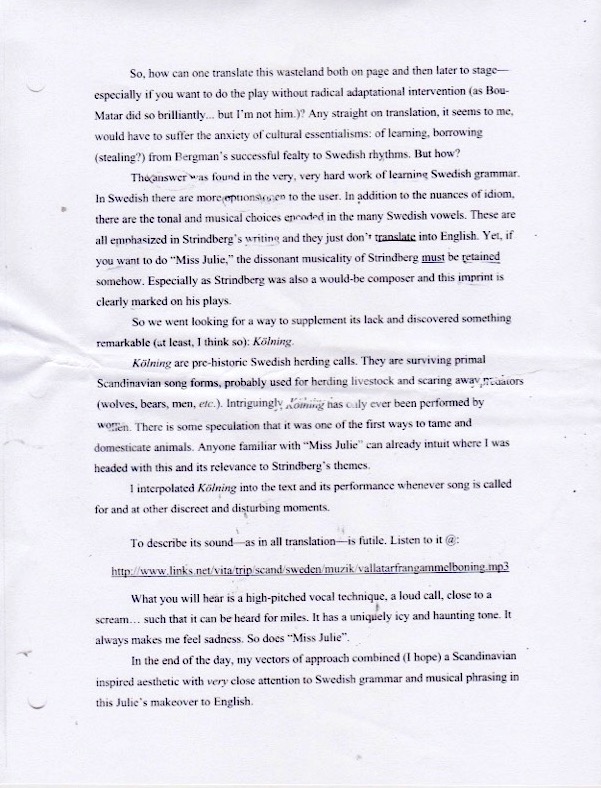Here attached on right, is a page – probably more than twenty years old – from an application that I was about to shred a few years later for privacy’s sake – you can see I started to tear the page in two. I read hundreds of applications for the Lab each year and there’s only so much paper I can keep. But after I tore it in two, I couldn’t throw it away – it’s an example of a really rich and quite novel idea born out of research and personal interest. I only wish, so many years later, I could remember who wrote it. Look it over and enter the link to listen – quite extraordinary that such a thing as “Kölning” exists – I had never heard of it. And an ancient, totally non-rational tradition in a domain of women. And so perfect for the play. This is an example of smart research that would inform in some way this familiar work or other plays by this author.
To describe its sound—as in all translation—is futile. Listen to it @:
What you will hear is a high-pitched vocal technique, a loud call, close to a
scream… such that it can be heard for miles. It has a uniquely icy and haunting tone. It
always makes me feel] sadness. So does “Miss Julie”.
In the end of the day, my vectors of approach combined (I hope) a Scandinavian
inspired aesthetic with very close attention to Swedish grammar and musical phrasing in this Julie*s makeover to English.
Strindberg’s play Miss Julie is a short play theater people often work on early in their careers- for very good reason. Good parts, small cast. In general, Strindberg’s life and all his plays are so fascinating, and so well known, that it’s challenging to find a new way to think about them. In the applications for the Directors Lab, I always ask directors to talk about a play that means a lot to them as a way of finding out about their various career paths and artistic aspirations. Many of these plays make their way into the Lab and are listed on its website https://www.lct.org/explore/directors-lab/
